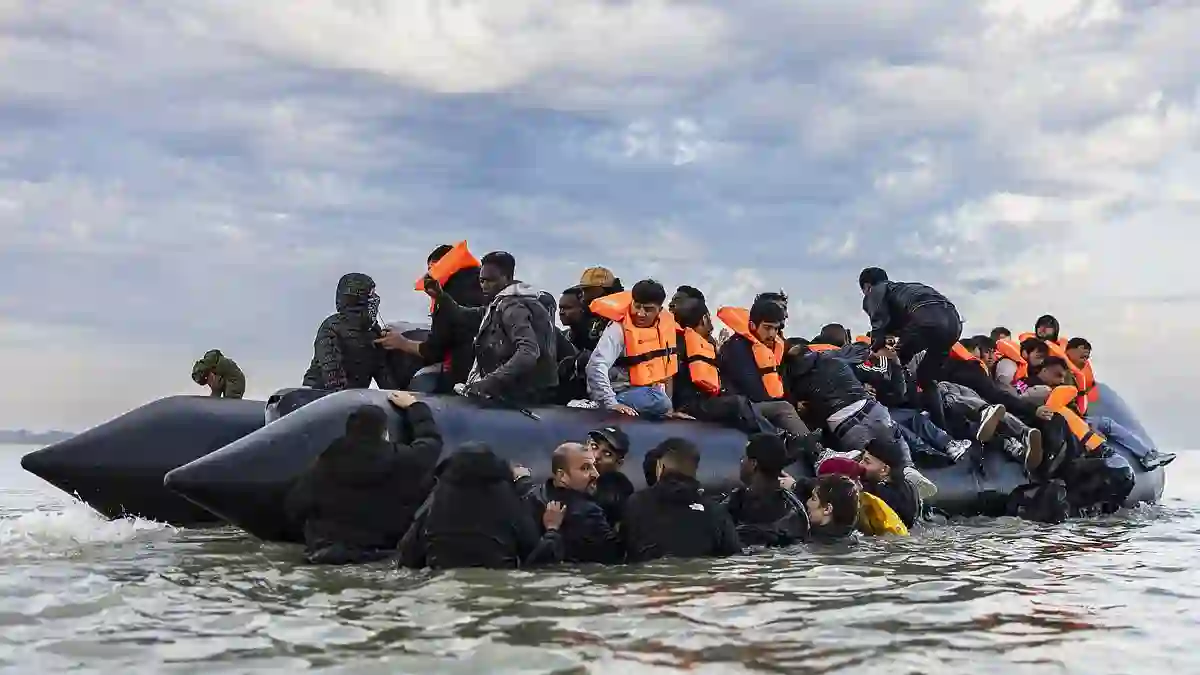The debate over Britain’s migrant crisis has flared up again after new figures revealed that the number of small-boat arrivals under the Labour government has now passed 50,000.
The milestone comes just over a year since Keir Starmer took office—and critics say it’s proof his strategy isn’t working.
Accusations and Political Finger-Pointing
Since scrapping the Conservative government’s Rwanda deportation plan on his very first day as Prime Minister, Starmer has faced mounting pressure to show results. Instead, arrivals have surged.
Former Labour home secretary Jacqui Smith tried to deflect blame, insisting the crisis was rooted in the failures of the previous Conservative government.
She argued that Tory inaction gave criminal gangs the time and space to build up their operations across Europe.
A Chaotic Scene on French Beaches
On the French coast yesterday morning, the problem was on full display.
Large groups of migrants were seen sprinting across Gravelines beach, between Calais and Dunkirk, to reach boats headed for Britain.
French police stood by as dozens waded into the surf to climb aboard, many without life jackets.
A French navy vessel patrolled nearby, but the launch went ahead.
The ‘One In, One Out’ Policy Shows Little Impact
Labour’s much-touted “one in, one out” deal with France—meant to send small-boat arrivals back across the Channel in exchange for legal applicants—has done little to slow the crossings.
In just the past week, more than 1,500 people have made the journey.
On Monday alone, 474 were recorded arriving in the UK, bringing the total since last year’s general election to 50,271.
That figure doesn’t yet include hundreds picked up at sea and brought to Dover yesterday.
Opposition Parties Slam Labour’s Approach
Shadow Home Secretary Chris Philp accused Labour of “surrendering our borders” and creating conditions for chaos, with local communities paying the price.
He pointed to rising crime, including serious assaults committed by some recent arrivals, and argued that scrapping the Rwanda deterrent sent the wrong message.
Tory leader Kemi Badenoch went even further, promising to bring crossings down to zero if her party returns to power.
She said her team is exploring increased detention capacity and reinstating strong deterrents, claiming that if migrants believe they’ll be sent to Rwanda rather than housed in hotels with benefits, they’ll stop making the dangerous journey.
A Tragic Death Highlights the Risks
The dangers of the Channel crossing were underscored on Monday when a Somali woman in her late twenties drowned off the French coast.
She reportedly fell into the water while trying to board a traffickers’ dinghy near Dunkirk at 4am.
Rescuers brought her back to shore but couldn’t revive her, making her the 19th person to die attempting the crossing this year.
The Numbers Keep Climbing
Official statistics paint a stark picture: 27,029 small-boat arrivals so far this year—a 47% jump compared to the same period last year, and 67% higher than in 2023.
Since the small-boat crisis began in 2018, 178,167 people have reached Britain this way, with only around 4% ever removed from the country.
